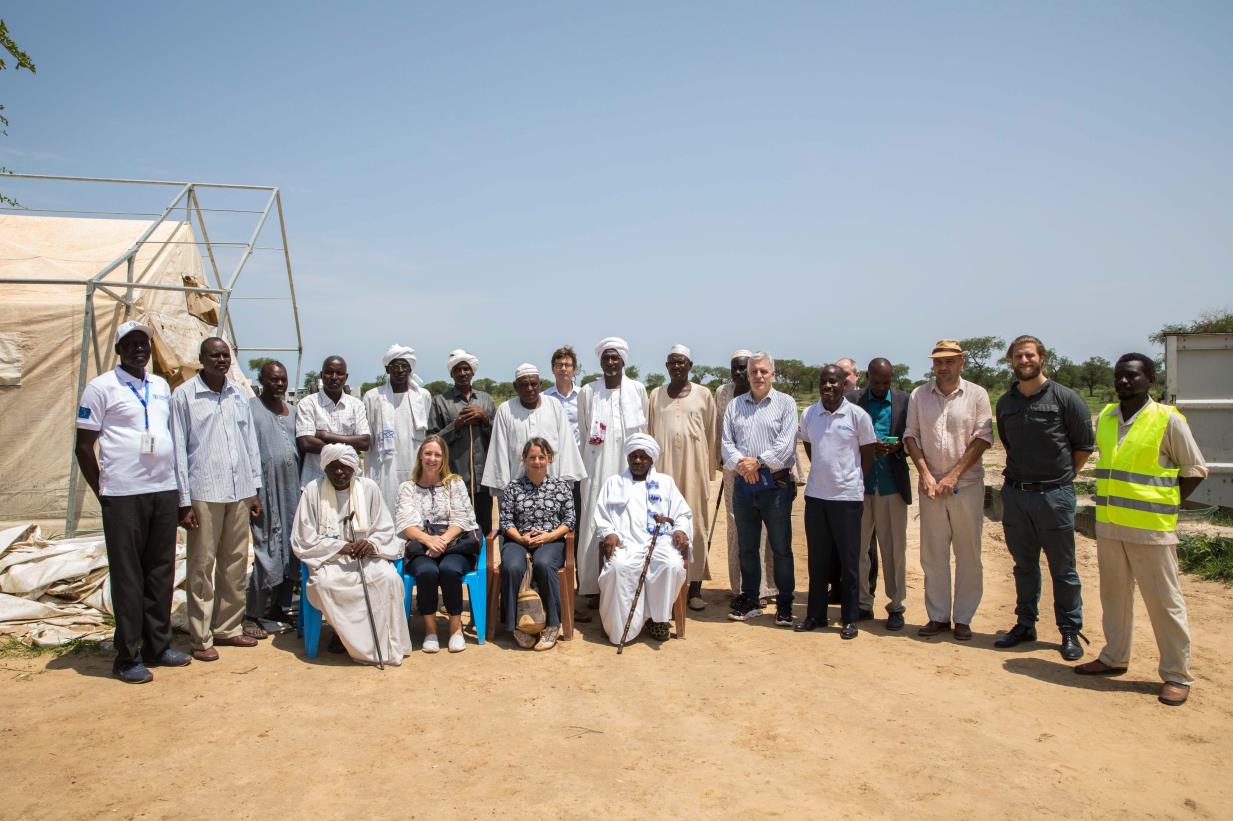Live from South Sudan, FAO shares insights behind its work for Zero Hunger

Kicking off its Summer Series dialogue sessions on food systems, the UN Association of New York convened a digital dialogue with the Rome-based Agencies (RBAs) working for Zero Hunger and food security, with FAO’s Representative in South Sudan sharing milestones and challenges from a country-level context
New York, 10 June 2021 – Ahead of the UN Food Systems Summit in September of this year, the UN Association of New York (UNA-NYC) kicked off its four-part Summer Series on topics ranging from agri-food systems transformations, food loss and waste reduction initiatives and sustainable consumption and production practices, among others.
Representatives from the Rome-based Agencies (RBAs), FAO, the International Fund for Agricultural Development (IFAD) and the World Food Programme (WFP) initiated discussions by shedding light on the UN system’s work supporting countries achieve Sustainable Development Goal 2 (SDG2) – Zero Hunger. They highlighted the role that agri-food systems play in our food security and health, but also in protecting our natural resources, in valuing different cultural culinary traditions and in fomenting inclusive economic and income-generating activities.
Insights from South Sudan, where the underlying factors of food insecurity are multiple and interwoven
Connecting live from the Abyei Special Administrative Area, which is situated between South Sudan and the Sudan and is an area with no final boundary determined between the two countries, Meshack Malo, FAO Representative in South Sudan, provided a holistic walkthrough of FAO’s history and purpose, and how its far-reaching mandate across many of the SDGs is manifested on the ground.
Malo spoke of FAO’s roles and responsibilities and of the Organization’s value added, in a country that finds itself at the crossroads of protracted climate and humanitarian emergencies and economic shocks, all of which have taken a toll on rural and agricultural livelihoods and food security levels.
Speaking of South Sudan and other countries facing famine-likely situations due to the compounded impact of humanitarian emergencies, conflict and climate extremes, he said that food aid and food support “constitute the better part of these countries’ economies.” A key challenge in these contexts, he added, is ensuring that agri-food systems are rehabilitated so they can remain inclusive to ensure that no one is left behind.
Against this backdrop, “it is important to look at the underlying factors,” Malo said, pointing to how investments need to be made in production capacities, so that these chronically aid-dependent populations can be empowered and be able to pursue income-generating opportunities and enjoy sustainable livelihoods for them and their families.
His visit to the Abyei Special Administrative Area was geared at contributing to these very ideas. Together with ambassadors and dignitaries representing key resource partners and his in-country team, Malo was visiting project sites where alternative livelihood initiatives were being pursued, such as beekeeping and livestock production and processing, and essential infrastructure was being implemented, such as multi-purpose solar-powered water capture and distribution yards for animal and household consumption.
During the visit, the delegation also met with community leaders of nomadic and host communities of Abyei to strengthen the commitment in creating platforms for dialogue and to mitigate natural resource-based conflict, reduce forced displacement and irregular migration.
The nexus between food security and peace
With every SDG depending to some degree on food security, sustainable and equitable agri‑food systems stand to bring great human progress and socio-economic prosperity, while their absence can be a fundamental cause of poverty, conflict and overall low human development. In this respect, Malo spoke of the peace-food security nexus, which is at the forefront of FAO’s efforts on supporting short-term food security needs and catalyzing long-term development and prosperity.
“Peace is a fundamental factor in order to ensure that there is sufficient food production,” he said, pointing to how a lack of peace can affect farmers and entire communities in a host of ways, oftentimes interfering with the agricultural season and directly affecting their livelihoods and food security. This, in turn, can contribute to upward trends in the number of internally displaced people and of refugees seeking protection across the country’s borders.
“That fundamental relationship between peace and food security and food security and peace is important. There will never be food security without peace and also no peace without food security,” Malo remarked.
Recognizing that sustainable and equitable agri-food systems stand to bring overarching progress and prosperity, Malo spoke of how he and his FAO team in South Sudan remain committed to working at the service of those most in need in the country.
Related links
- Read about FAO’s work in South Sudan and on Zero Hunger
- Stay informed ahead of the UN Food Systems Summit
- Follow the upcoming events of the UN Association of New York Summer Series
